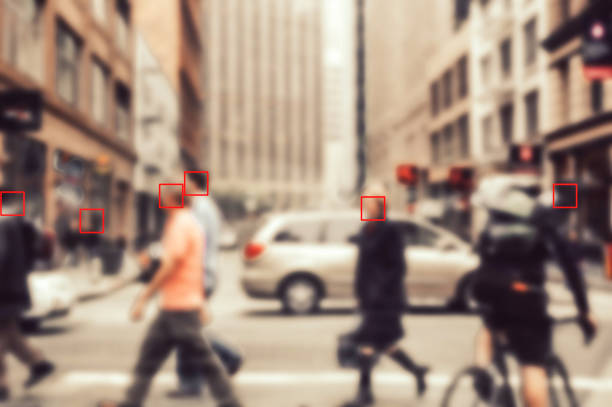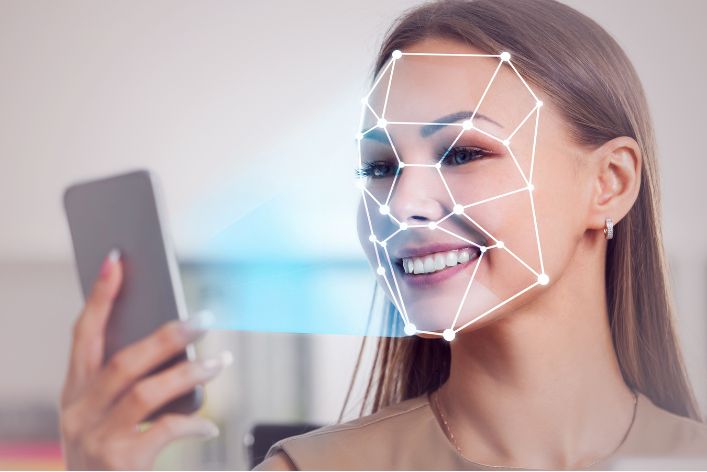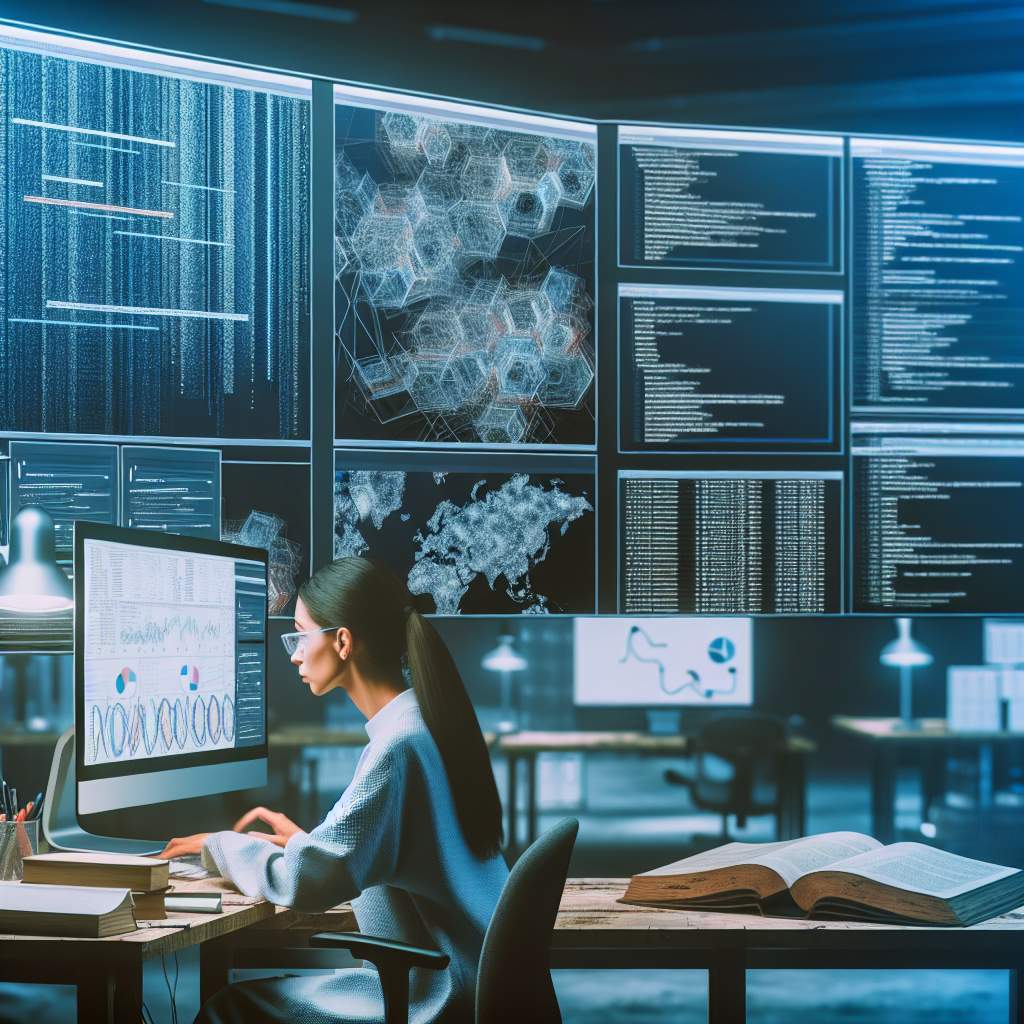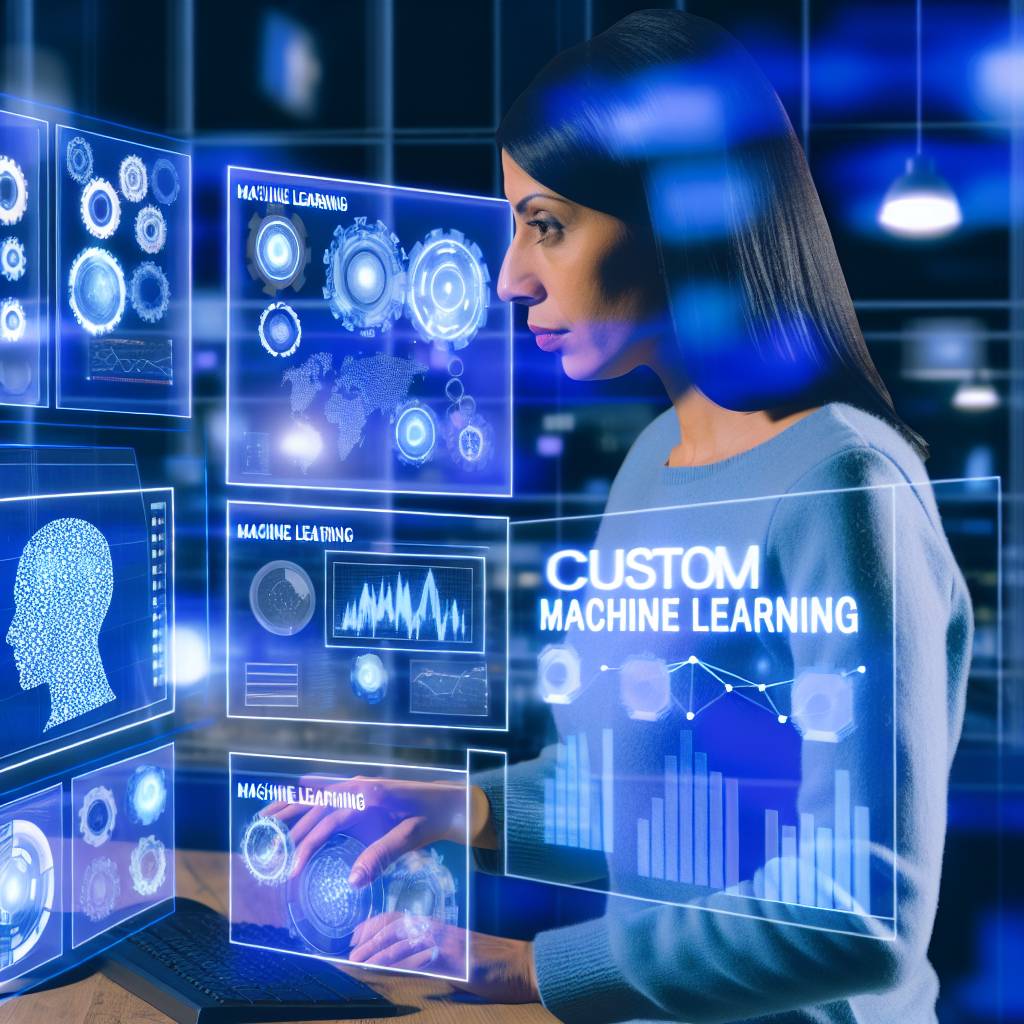Applications for facial recognition technology can be found in several sectors, including security, retail, and healthcare.
Our phones and PCs can now be unlocked with just our faces.
Recognizing someone with a quick look at their face is fascinating, but serious ethical issues need consideration.
How Does Facial Recognition Work?
The definition of “facial recognition” is quite obvious.
The system uses computer vision techniques to map, examine, and verify a face’s identification in a picture or a video.
Although solutions use different proprietary algorithms, facial recognition follows three main steps.
- Detection: The process of finding a face in an input image is referred to as detection. Therefore, a bounding box is formed around each face. First, train facial recognition algorithms to recognize faces across various data entries.
- Analysis: Analyzing involves listing the features of each face. This involves calculating distances between the eyes, nose, and mouth and analyzing the shape of the chin. The so-called faceprint is created by combining those measurements and turning them into a singular set of integers.
- Recognition: The act of actually identifying a person in the input photo is referred to as recognition. In certain applications, categorisation takes the role of this step. In these cases, algorithms categorize individuals by gender or age without confirming identity.
Read: 10 Real-Life Applications of Machine Learning

The Benefits of Facial Recognition Technology
Facial recognition technology has the potential to bring numerous benefits, including:
Improved security measures in public spaces
Facial recognition software identifies and locates missing persons or suspects, increasing successful investigations and arrests.
The technology screens individuals entering public buildings or events, helping to prevent security breaches.
Enhanced ability to identify and locate missing persons or criminal suspects
Law enforcement agencies quickly identify individuals involved in criminal activities, boosting investigation success rates.
The technology can also locate missing persons, potentially helping to reunite families and reducing the burden on law enforcement resources.
Streamlined processes in industries such as retail and healthcare
Facial recognition technology verifies customers’ or patients’ identities, reducing manual verification and improving efficiency.
This speeds up experiences for customers or patients, freeing up staff for other tasks.
Increased convenience
The technology unlocks devices and processes payments, offering users a quick way to access devices or complete transactions.
This can save time and effort for users, as well as increasing security by reducing the risk of unauthorized access.
Improved customer experiences
Facial recognition software personalizes shopping experiences, helping retail businesses understand and meet customer needs.
For example, the technology can identify returning customers and recommend products based on their past purchases or preferences.
This can improve the overall shopping experience and increase customer loyalty.
Read: Advanced Signature Tracking Tools to Boost Email Engagement
The Ethical Concerns With Facial Recognition Technology
Lack of informed consent and transparency
Any sort of data mining raises privacy concerns, particularly online where most data is anonymised.
Large photo datasets, taken under various lighting and angles, are ideal for testing and training facial recognition systems.
Using a person’s face for identification increases access to additional data and raises ethical concerns.
Online services, including public Flickr photos and some social media networks, supply most images.
Microsoft Research compiled MSCeleb5, the world’s largest dataset, containing 10 million photos of 100,000 people.
Data privacy
Privacy concerns with facial recognition focus on data storage practices that expose facial information to security risks.
Most businesses store facial data on local computers, leading to security gaps and a shortage of IT security experts.
When data is stored in the cloud, facial recognition technology can guarantee the highest level of security.
However, good encryption is the only way to ensure data integrity. In order to store data properly and provide consumers authority over their own data, which will increase accountability and stop harmful traffic, IT cybersecurity specialists must be deployed.
On the plus side, given the option to disable or not use the function, consumer devices equipped with facial recognition technologies are less contentious.
However, because of the degradation of privacy, consumer goods firms continue to be targets of prohibitions.
Yet, they keep selling goods using facial technology by positioning them as cutting-edge security features.
Devices that enable a victim to pursue monetary restitution for the privacy violation can be used to support the decision to pursue legal action.
For instance, the social networking company Facebook paid $650 million to resolve a class-action lawsuit in Illinois involving the collection of private images for facial recognition.
Mass surveillance
Although worries about mass surveillance may seem like an exaggerated conspiracy theory, they have actually quite dramatically affected Americans.
We Design & Develop Websites, Android & iOS Apps
Looking to transform your digital presence? We specialize in creating stunning websites and powerful mobile apps for Android and iOS. Let us bring your vision to life with innovative, tailored solutions!
Get Started TodayLarge internet companies are worried that they may receive subpoenas to identify individuals who have visited abortion clinics as a result of the elimination of federal abortion protections.
Massive public movement logging may initially appear appropriate, but it may not be, as the example of the abortion clinic shows.
A key component of most democracies is the public’s freedom to congregate and freely voice support or opposition to current concerns.
The use of mass monitoring and facial recognition to track suspected “bad behaviour” against civilians is a possibility. A few aspects of this ethical concern have already materialised.
Bias and accuracy concerns
The existence of racial bias in the algorithms is a frequently voiced ethical problem with facial recognition technology.
This fear, however, reflects a deeper worry about the general accuracy of facial recognition technologies.
Demographic classification algorithms that aim to utilise a face to predict attributes like ethnicity, gender, and age are frequently cited as the source of alleged proof of bias.
Darker-skinned women were misclassified more often than any other category, according to a 2018 MIT study.
Algorithms can be biassed by various things, such as the age of a photo compared to the face of a person or the difficulty of distinguishing between identical twins or doppelgängers.
Suppose you’re trying to identify your favourite customers. In that case, this might not seem like a big deal, but if law enforcement judgements are based on facial recognition technology, it’s a serious worry.
Read: Product Demos with AI-Powered Interactive Videos: Revolutionize Now
Case Studies
These are just a few examples of the ethical issues that have been raised about facial recognition technology.
- In 2019, it was reported that Amazon’s facial recognition tool, “Rekognition,” had falsely matched 28 members of Congress with mugshots in a test run by the American Civil Liberties Union (ACLU). This raised concerns about the potential for biased and inaccurate results, particularly when used by law enforcement.
- In 2018, a study conducted by the Massachusetts Institute of Technology (MIT) found that facial recognition algorithms were significantly less accurate at identifying people of color, particularly women. This raises concerns about the potential for facial recognition technology to perpetuate and amplify existing biases.
- In 2017, the city of San Francisco banned the use of facial recognition technology by city agencies due to concerns about civil liberties and the potential for abuse.
- In 2018, it was revealed that the Chinese government was using facial recognition technology as part of its “social credit” system, which rates and rewards or punishes citizens based on their behavior. This raised concerns about the potential for the technology to be used for mass surveillance and control.
It’s important for developers, users, and policymakers to consider the potential impacts of this technology on privacy, civil liberties, and other ethical concerns.
Read: Turn Speech into AI-Perfected Text: Revolutionize Content Creation

Possible Solutions to These Ethical Issues
A few potential solutions could be implemented to address the ethical concerns surrounding facial recognition software.
One is the regulation and oversight of the technology by government bodies.
This could include the development of clear guidelines for the use of the technology, as well as independent oversight to ensure that it is being used ethically and responsibly.
Another solution would be implementing ethical guidelines by companies using the technology.
This could involve creating internal policies on using the software and seeking input from stakeholders, such as civil liberties organizations and community groups.
Finally, increased transparency and accountability in using facial recognition software is crucial.
This could include requirements for companies to disclose how they use the technology and make their algorithms and data sets available for independent review.
It could also involve the creation of mechanisms for individuals to challenge incorrect identifications or misuse of their data.
Conclusion
Facial recognition technology offers many benefits but presents significant ethical challenges that cannot be ignored.
These issues require thoughtful consideration, from privacy concerns to the potential for bias and mass surveillance.
To mitigate these risks, we need robust regulations, transparent practices, and ethical guidelines that ensure responsible use.
Policymakers, companies, and communities must collaborate to create a framework that balances innovation with respect for civil liberties.
By addressing these ethical concerns, we can harness the power of facial recognition technology while safeguarding individual rights and promoting social trust.
Before you go…
Hey, thank you for reading this blog to the end. I hope it was helpful. Let me tell you a little bit about Nicholas Idoko Technologies.
We help businesses and companies build an online presence by developing web, mobile, desktop, and blockchain applications.
We also help aspiring software developers and programmers learn the skills they need to have a successful career.
Take your first step to becoming a programming boss by joining our Learn To Code academy today!
Be sure to contact us if you need more information or have any questions! We are readily available.
Put Your Tech Company on the Map!
Get featured on Nicholas Idoko’s Blog for just $200. Showcase your business, boost credibility, and reach a growing audience eager for tech solutions.
Publish Now








